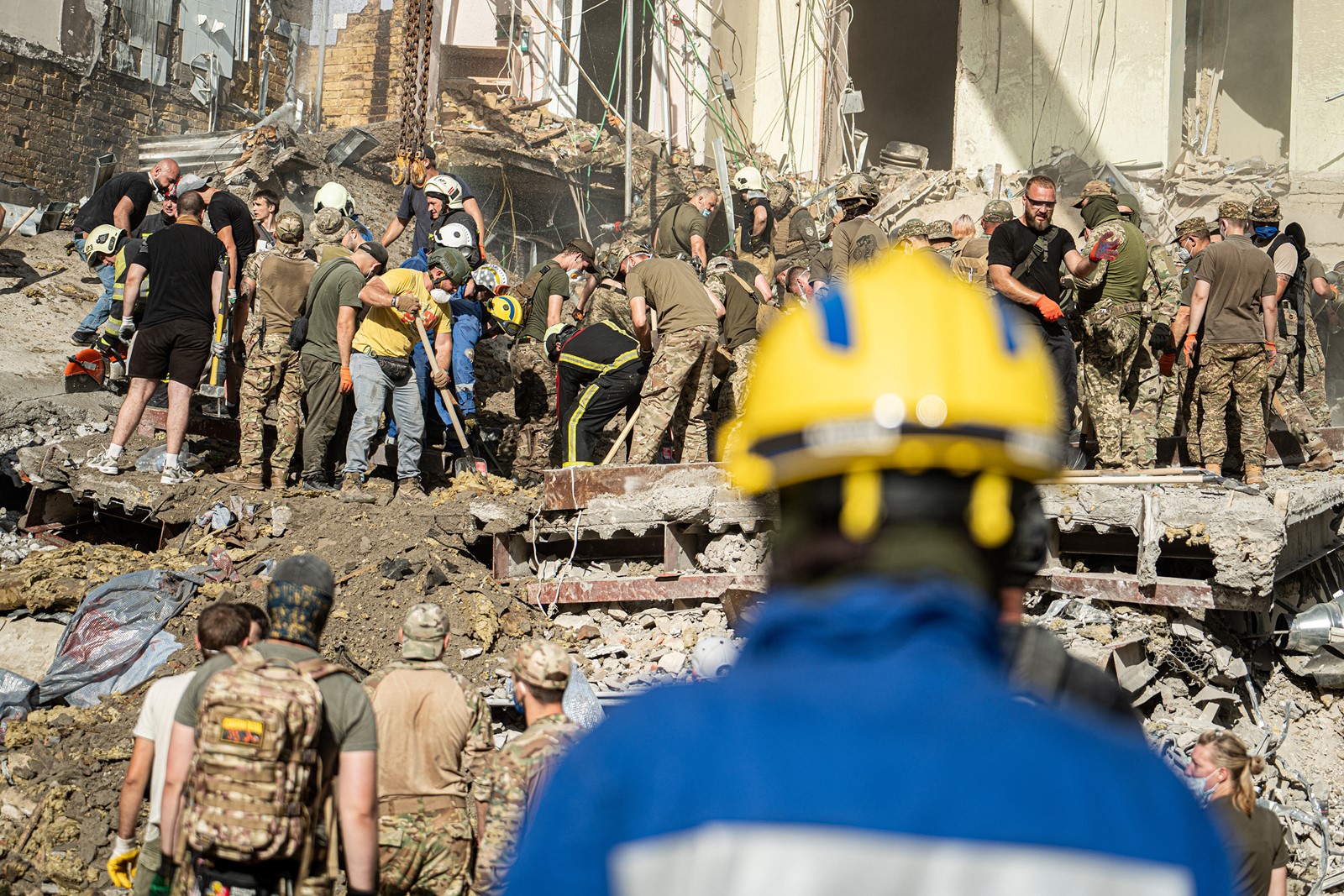
WASHINGTON>> The United States and its NATO allies have agreed that Ukraine should have an “irreversible” path to membership in the alliance and are enshrining the phrase in a document to be released during this week’s summit in Washington, U.S. and allied officials say.
Although there is no consensus yet about Ukraine joining NATO, the strengthened language would show that there is movement in that direction. The United States was once deeply skeptical about whether Ukraine was ready to become a member, and although questions remain, more and more U.S. and European officials believe that the country eventually will be able to join.
Officials say there always could be a last-minute change before the document is released but that the member nations had reached broad agreement in recent days.
The document, the summit communiqué, will not lay out an exact timeline for membership, which the Ukrainians have been asking for, and it will insist that Ukraine prove it can manage corruption and abide by strong democratic and law-based governance — conditions also set for other alliance members, officials say. But it should be welcomed by Ukrainian officials who have been pushing for language along the lines of “irreversible,” they say.
U.S. and allied officials are negotiating the commitments they plan to make to Ukraine with new urgency, given the uncertainty over whether President Joe Biden, a staunch opponent of Russia in its war, can win reelection this fall, according to officials in Washington.
The officials say it is critical that leaders of the 32 member nations gathered in Washington this week use strong language to signal that Ukraine has a viable path to joining the alliance, even if that does not happen immediately because of the war. They also say the leaders must agree to concrete steps to ensure the alliance is the main organizer of military and humanitarian aid to Ukraine rather than the U.S.
Looming over the talks is the specter of a second Donald Trump presidency. Trump has expressed admiration for Russian President Vladimir Putin, criticized Ukraine and expressed doubts about sending any military aid to the nation. And in his first term, Trump talked about withdrawing the United States from NATO.
Because of these concerns, officials and analysts say that “Trump-proofing” the alliance and aid to Ukraine is an important element of the talks this week. “Ukraine can and will stop Putin, especially with our full, collective support,” Biden said in a speech Tuesday night.
Beyond solidifying foundations that could endure into a Trump presidency, the leaders also are trying to head off criticism from President Volodymyr Zelenskyy of Ukraine, who last year accused the alliance of waffling on a promise to give his country membership.
But a more amicable version of Zelenskyy arrived in Washington on Tuesday. He expressed thanks for the support given to Ukraine so far while prodding the administration to continue relaxing its restrictions on the use of U.S. weapons in Russia and sending immediate aid.
“It’s time to step out of the shadows to make strong decisions to act and not wait for November,” he said in a speech, referring to the U.S. presidential election. “We must be strong and uncompromising all together.”
The debate about the communiqué revolved around whether to say that Ukraine has an “irreversible” path to NATO membership and what conditions to attach to that.
As of Tuesday, allied officials had decided to include the word “irreversible,” but that could change before the document is released, officials say. The alliance grants membership only by unanimous consent, and U.S. and other officials have been wary of what Hungary might say. The country’s prime minister, Viktor Orban, visited Russia and China before arriving in Washington and is more sympathetic than other NATO leaders to Putin.
Jens Stoltenberg, secretary-general of NATO, urged top diplomats at an alliance meeting in Prague in May to commit to collectively giving Ukraine about $1.1 billion of military aid over the next five years. He could not get consensus. Now officials say they aim to announce that the alliance will give $43.3 billion of military aid to Ukraine next year, equal to the current level of assistance.
There is another numbers concern: Trump often has criticized NATO members for not spending more on defense.
The allies agreed in 2014 to spend at least 2% of their economic output, or gross domestic product, on their militaries. At the time, only the United States, Britain and Greece were meeting the goal.
During the 2018 NATO summit, Trump railed against allies for that failure and surprised leaders by demanding an increase of the benchmark to 4%, a goal that would have been out of reach for many alliance members. He said the United States would “go its own way” in 2019 if military spending from other NATO countries did not rise.


 PREVIOUS ARTICLE
PREVIOUS ARTICLE
